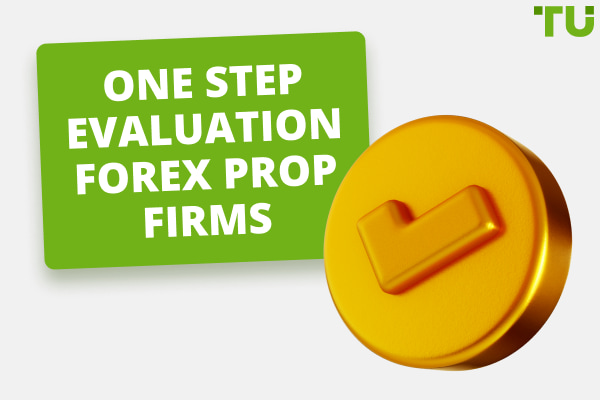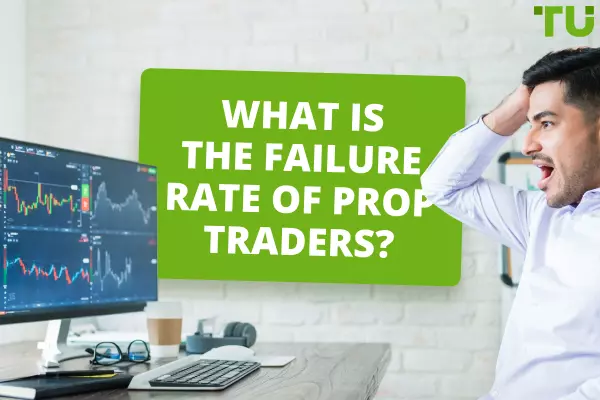Resources Available To Help Prop Traders Succeed
Seasoned prop traders often make use of the following resources:
-
Educational resources such as trading courses, webinars, and books
-
Technological tools such as trading platforms, charting software, and algorithmic trading systems
-
Community resources such as online forums, social media trading groups, and mentorship programs
-
Financial resources such as prop trading funding programs, brokerage accounts with margin, and access to capital markets
In this article, the experts at TU will discuss the various resources available to help prop traders succeed.
To be successful in this field, they need access to different types of support and tools. These resources can include educational materials, trading platforms, risk management tools, professional networks, and market research services.
The right set of resources can facilitate the entire trading set-up that a prop trader follows. It enables them to focus on what’s important, i.e., analysis, rather than the laborious tasks.
Resources available to prop traders are diverse and encompass trading journals, performance tracking software, backtesting tools, and valuable information pools.
Utilizing these resources enhances profitability, mitigates risks, and grants access to valuable insights that can lead to substantial gains.
Proprietary trading, often referred to as prop trading, is a unique trading approach where financial firms use their own capital to trade a variety of financial instruments instead of relying on clients' money.
Fund your account with Topstep!Educational resources
Prop traders have access to a wealth of educational resources that serve as invaluable tools for skill enhancement and risk management. These educational resources are diverse, including.
Online courses and tutorials
Proprietary trading firms often provide online courses and tutorials. These resources are designed to equip traders with a comprehensive understanding of trading dynamics and effective strategy implementation. The courses cover a range of topics, from trading fundamentals to advanced strategies, enhancing traders' expertise.
Books and articles
Prop traders often turn to age-old books and articles to deepen their understanding of trading strategies, technical analysis, and risk management. These written resources act as reference guides, offering insights and best practices to enhance traders' skills. For example, the book “The Intelligent Investor” was first published in 1949, but it provides worthy wisdom till date for anyone beginning their investing journey.
Webinars and seminars
Many prop trading firms organize webinars and seminars as part of their commitment to trader development. These virtual or in-person sessions provide traders with invaluable market insights and strategies shared by experienced professionals. These efforts also act as a platform for traders to stay updated with the latest market trends and learn effective trading techniques.
Mentorship programs
Mentorship is an integral component of prop trading firms. In fact, new traders can significantly benefit from the mentorship programs that involve guidance and support from seasoned traders who offer practical insights, answer queries, and assist them at the beginning of their journey.
Technological resources
Majority of prop traders make use of these technological resources such as:
Trading platforms
Proprietary trading firms equip their traders with cutting-edge trading platforms that boast advanced functionalities. These platforms offer traders comprehensive capabilities for charting, order management, and trade execution. The use of sophisticated trading platforms empowers traders to execute strategies with precision and efficiency.
Charting software
Charting software is instrumental for traders to analyze market trends, study historical price movements, and identify potential trading opportunities. Prop traders utilize charting software to gain insights into market dynamics and inform their trading strategies effectively.
News and market data feeds
Staying updated with real-time market information is practically a job requirement for prop traders. Many prop trading firms provide access to real-time news and market data feeds. This real-time data empowers traders to remain well-informed about market developments, ensuring they make timely and informed trading decisions.
Risk management tools
Effective risk management is the cornerstone of successful trading. Prop trading firms typically offer risk management tools to traders. These tools encompass features such as stop-loss orders and position sizing calculators. By integrating these risk management tools into their trading strategies, prop traders can mitigate potential losses and protect their capital.
Best Prop trading firms
Community resources
The beauty of community resources is that they can be accessed even by beginners. Here are some popular options:
Online forums and chat rooms
Forums help prop traders connect, interact, and collaborate. These digital spaces enable traders to exchange ideas, seek answers to pressing questions, and partake in a collective learning experience. Engaging with peers and experienced traders through these channels provides traders with fresh insights and diverse perspectives on trading strategies and market dynamics.
Prop trading firms and networks
Proprietary trading firms and networks offer prop traders access to a vibrant community of seasoned traders. This interaction opens the door to a wealth of knowledge, insights, and mentorship. These entities often extend training and educational programs, enabling traders to continuously expand their skillset and refine their strategies.
Social media groups
Social media groups create an additional avenue for prop traders to connect and collaborate with their peers. These groups provide traders with a digital platform for discussions, idea sharing, and mutual learning. Engaging in social media groups allows traders to stay updated with the latest industry trends, share trading insights, and learn from the experiences of other traders.
Financial resources
Prop traders can further enhance their trading skill by tapping into a range of financial resources.
Prop trading funding programs
Many prop trading firms extend funding programs to traders who can consistently demonstrate profitability. These programs serve as a gateway to accessing additional capital for trading. Successful traders can leverage such funding to expand their positions and potentially boost their returns. It is a mutually beneficial arrangement where traders are provided with the resources they need to succeed, and in turn, the firm shares in the profits generated.
Brokerage accounts with margin and leverage
Brokerage accounts equipped with margin and leverage capabilities offer traders the advantage of amplified buying power. This allows traders to capitalize on more extensive trading opportunities and navigate the financial markets with increased flexibility. Leveraging these accounts can be particularly advantageous when trading a wide array of financial instruments. It empowers traders to optimize their market strategies while effectively managing risk. However, it is important to keep a tab on risk when using leverage as things can go south very quickly.
Access to capital markets
Proprietary trading firms typically have direct access to capital markets. Such unfettered access opens doors to a broader spectrum of financial instruments and trading opportunities. Traders funded under such firms gain a competitive edge, as they can seamlessly trade across different asset classes and explore diverse investment avenues. Capital markets' accessibility can significantly diversify trading portfolios and enhance the potential for profits.
Conclusion
In summary, a prop trader's path to success is supported by a range of resources, each playing a role in their journey. These resources come in different forms, including learning materials, technology, community connections, and financial support. For example, traders can access online courses and mentorship programs to gain knowledge, use advanced trading platforms for real-time information, engage with online communities for mutual support, and access funding and capital markets for financial leverage. These resources work together and serve various purposes in a trader's journey. To be successful, prop traders need to not only access these resources but also choose the ones that best match their goals and strategies. It's important to carefully evaluate each resource and adapt them to their specific trading approach.
FAQs
How do I become a successful prop trader?
To become a successful prop trader, you should start by gaining a strong understanding of financial markets and trading strategies. Education and practice are essential, so consider taking courses, reading books, and using virtual trading platforms to hone your skills. Additionally, having a well-thought-out trading plan, managing risk effectively, and continuously adapting to changing market conditions are crucial. Many successful prop traders also emphasize the importance of discipline and emotional control in the face of market fluctuations.
What skills do prop traders have?
Prop traders possess a diverse skill set that includes a deep understanding of financial markets and trading instruments. They are skilled in technical and fundamental analysis, risk management, and the use of trading software and platforms. Effective decision-making, discipline, adaptability, and emotional control are also crucial skills for prop traders, as they navigate the complexities of financial markets.
How do prop traders make money?
Prop traders make money by engaging in trading activities on behalf of a proprietary trading firm. They generate profits through successful trading strategies, leveraging their expertise in market analysis and risk management. Profits are typically shared with the prop firm, which provides the trader with capital, technology, and resources to execute trades.
What are the benefits of trading for a prop firm?
Trading for a prop firm offers several benefits, including access to substantial capital for trading, advanced trading platforms and tools, and a supportive trading environment. Prop firms often provide educational resources, mentorship, and risk management assistance to help traders improve their skills. Additionally, traders may be eligible for performance-based bonuses and profit-sharing, increasing their potential for earnings.
Glossary for novice traders
-
1
Broker
A broker is a legal entity or individual that performs as an intermediary when making trades in the financial markets. Private investors cannot trade without a broker, since only brokers can execute trades on the exchanges.
-
2
Trading
Trading involves the act of buying and selling financial assets like stocks, currencies, or commodities with the intention of profiting from market price fluctuations. Traders employ various strategies, analysis techniques, and risk management practices to make informed decisions and optimize their chances of success in the financial markets.
-
3
Prop trading
Proprietary trading (prop trading) is a financial trading strategy where a financial firm or institution uses its own capital to trade in various financial markets, such as stocks, bonds, commodities, or derivatives, with the aim of generating profits for the company itself. Prop traders typically do not trade on behalf of clients but instead trade with the firm's money, taking on the associated risks and rewards.
-
4
Leverage
Forex leverage is a tool enabling traders to control larger positions with a relatively small amount of capital, amplifying potential profits and losses based on the chosen leverage ratio.
-
5
Risk Management
Risk management is a risk management model that involves controlling potential losses while maximizing profits. The main risk management tools are stop loss, take profit, calculation of position volume taking into account leverage and pip value.
Team that worked on the article
Chinmay Soni is a financial analyst with more than 5 years of experience in working with stocks, Forex, derivatives, and other assets. As a founder of a boutique research firm and an active researcher, he covers various industries and fields, providing insights backed by statistical data. He is also an educator in the field of finance and technology.
As an author for Traders Union, he contributes his deep analytical insights on various topics, taking into account various aspects.
Dr. BJ Johnson is a PhD in English Language and an editor with over 15 years of experience. He earned his degree in English Language in the U.S and the UK. In 2020, Dr. Johnson joined the Traders Union team. Since then, he has created over 100 exclusive articles and edited over 300 articles of other authors.
Mirjan Hipolito is a journalist and news editor at Traders Union. She is an expert crypto writer with five years of experience in the financial markets. Her specialties are daily market news, price predictions, and Initial Coin Offerings (ICO).
















